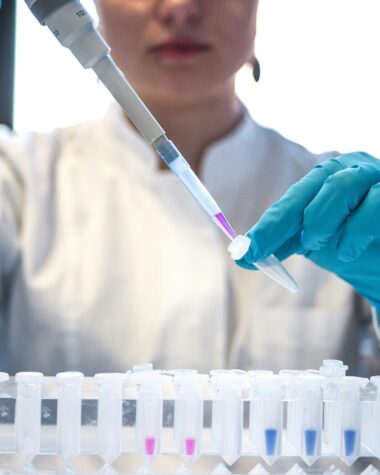Teladoc Health, Inc. (NYSE: TDOC) is a global pioneer in virtual healthcare, transforming how individuals access medical, mental health, and chronic care services through digital platforms. Headquartered in Purchase, New York, and founded in 2002, Teladoc has evolved from a telemedicine startup into the world’s most comprehensive virtual care ecosystem—spanning more than 130 countries and supporting over 100 million members. The company’s mission is to deliver whole-person care anytime, anywhere, through its advanced technology, data-driven insights, and clinical expertise.
As one of the earliest entrants in the digital health space, Teladoc has played a central role in mainstreaming virtual care as a core component of modern healthcare. Its services now encompass a wide spectrum of offerings, including on-demand general medical visits, mental health therapy through its BetterHelp platform, chronic condition management, dermatology, nutrition counseling, expert medical opinions, and virtual primary care. This end-to-end platform positions Teladoc as a leader not just in telehealth, but in longitudinal care that integrates seamlessly into patients’ everyday lives.
Teladoc gained widespread attention during the COVID-19 pandemic, when the need for remote healthcare exploded. The company responded with rapid innovation and scale, acquiring several strategic assets—including Livongo Health in 2020 for chronic condition management—which significantly expanded its footprint in data-powered care delivery. While the Livongo acquisition brought short-term challenges, including a substantial goodwill impairment, it also strengthened Teladoc’s long-term positioning by combining behavioral and biometric insights with virtual care workflows.
Today, Teladoc operates through two primary business segments: Integrated Care, which serves large employers, health plans, and government programs; and BetterHelp, one of the largest direct-to-consumer mental health platforms in the world. With annual revenues exceeding $2.6 billion and a robust client base that includes Fortune 500 companies and major health insurers, Teladoc continues to scale its virtual-first model to address rising demand for accessible, efficient, and personalized care.
Now entering a new phase of disciplined growth and operational efficiency under fresh executive leadership, Teladoc is re-focusing on profitability, international expansion, payer integration, and AI-driven care solutions. With a cash-rich balance sheet, extensive clinical infrastructure, and unmatched scale in digital health, Teladoc Health is positioned to lead the next evolution of healthcare—where technology, data, and compassion intersect to deliver superior outcomes for patients worldwide.
Teladoc’s Fall Was Real—But So Is the Foundation It Still Holds
The downfall of Teladoc has been extensively documented. A key driver of the decline was the infamous $18.5 billion Livongo acquisition, which ultimately led to a $13 billion goodwill impairment—one of the largest in modern corporate history. Investors punished the company severely for this overreach, and with disappointing post-merger synergy and inconsistent profitability, Teladoc became a textbook case of how growth-at-any-cost strategies can backfire.
Yet beneath the financial missteps lies a very real and very scalable business. Teladoc currently serves over 92 million members through its Integrated Care segment, which partners with health plans, employers, and government programs. This B2B model continues to grow steadily, delivering consistent revenue and positive EBITDA. At the same time, Teladoc’s BetterHelp platform—though recently facing revenue contraction—still generates over $1 billion in annual sales from more than 400,000 paying subscribers, giving the company a formidable direct-to-consumer revenue engine.
As of Q1 2025, Teladoc is generating over $2.6 billion in annual revenue and has turned free cash flow positive, even while navigating a difficult restructuring environment. Its enterprise value sits near $2 billion, meaning shares are trading below 1x EV/Sales and just 6x free cash flow—a deep-value valuation rarely seen for companies with Teladoc’s infrastructure, customer base, and margin profile.

CHECK THIS OUT: Johnson & Johnson (JNJ) can be the Next Trillion-Dollar Stock and Boston Scientific (BSX) Just Signed a $45M Deal—Here’s What It Means for Investors.
The Appointment of a New CEO Marks a Strategic Inflection Point
A critical turning point for Teladoc may have arrived in early 2025 with the ousting of long-time CEO Jason Gorevic and the installation of Chuck Divita as the new chief executive. Divita, a seasoned executive with extensive experience as a healthcare CFO, brings a vastly different leadership style focused on cost discipline, margin expansion, and operational efficiency. Unlike his predecessor who prioritized top-line growth and headline-making acquisitions, Divita is expected to emphasize execution, internal ROI, and cash flow optimization—exactly what long-frustrated investors have been demanding.
This shift is already being reflected in quarterly reports. For example, in Q1 2025, Teladoc reported a sequential improvement in EBITDA and tighter cost controls across the board. Restructuring charges were acknowledged, but the underlying trend points to better capital allocation and a leaner, more focused business model. As the company rebuilds market trust under this new leadership, institutional interest may return, especially at today’s depressed valuations.
Segment Analysis: Integrated Care Is Stable, BetterHelp Is Being Repositioned
From a segment perspective, the Integrated Care business remains the cornerstone of Teladoc’s value proposition. In Q1 2025, Integrated Care delivered $389.5 million in revenue, representing 3% year-over-year growth with improving EBITDA margins. This segment includes virtual primary care, chronic condition monitoring, and specialty services like dermatology and weight management. As virtual care becomes standard in employer benefit plans and payer networks, Teladoc’s embedded partnerships and robust tech stack ensure recurring revenue and operational scalability.
Meanwhile, BetterHelp, which faced an 11% revenue decline year-over-year to $239.9 million in Q1 2025, is undergoing a strategic transformation. Teladoc recently acquired UpLift Health Technologies in a $30 million deal aimed at pivoting BetterHelp toward insurance-reimbursed, in-network mental health services rather than relying purely on out-of-pocket consumer sales. This move reflects a recognition that long-term success in behavioral health requires more than just brand visibility—it demands payer alignment and outcome-driven pricing.
AI Innovation, Global Expansion, and Product Diversification Support Future Growth
Beyond the headline financials, Teladoc is investing in high-value technology that will enhance long-term competitiveness. The company is developing AI-driven triage tools, care navigation algorithms, and real-time health coaching solutions that leverage its massive patient data lake. This will not only improve patient outcomes but reduce operating costs and clinician burden—core value drivers in the digital health ecosystem.
Additionally, international revenue grew 6% year-over-year in Q1, as Teladoc continues to scale in global markets with fewer competitors and higher margins. In markets like the U.K., Canada, and parts of Asia-Pacific, virtual care is growing rapidly post-pandemic, and Teladoc’s early investments in multilingual, globally-compliant infrastructure are beginning to pay off.
A Classic Fallen Angel With Institutional Appeal and Hedge Fund Watchlists
While Teladoc has largely fallen out of favor in mainstream growth stock circles, it continues to appear on hedge fund radar screens. According to recent filings, 33 hedge funds held positions in TDOC as of Q1 2025, up slightly from the prior quarter. While the stock is not currently on most “top 30 most popular” lists, its valuation metrics, sector positioning, and leadership shake-up are increasingly drawing attention from contrarian value and turnaround-focused institutional investors.
Respected investors such as Stefan Waldhauser of High Growth Investing have recently added Teladoc to their top watchlists. Waldhauser emphasizes that Teladoc is not just a failed growth story—it’s a platform company with a massive digital infrastructure and high-margin business model trading at fire-sale levels. With a clean leadership reset and better execution, the market could be forced to re-rate TDOC significantly higher.
Conclusion: Teladoc Is One Execution Pivot Away From a Massive Rebound
Teladoc Health, Inc. is no longer the pandemic-fueled darling it once was—but it doesn’t have to be. The company today is far leaner, more disciplined, and more mature. It boasts two billion-dollar business segments, significant free cash flow generation, and one of the most powerful digital health infrastructures in the world. It has cleaned house at the executive level, cut costs, and begun repositioning its services to align with long-term payer trends.
At under 1x sales and just 6x free cash flow, Teladoc is deeply undervalued by every metric that matters. While sentiment remains clouded by its history, the ingredients for a dramatic recovery are already in place. If Chuck Divita executes well and the company continues to improve profitability while expanding its AI and insurance-aligned offerings, Teladoc could easily double or triple from current levels.
READ ALSO: This Tiny Surgical Robot Stock Could Disrupt a $30 Billion Industry: Microbot Medical (MBOT) and Pro-Dex (PDEX) Plunges 39% – Here’s Why Smart Investors Are Buying the Dip.








